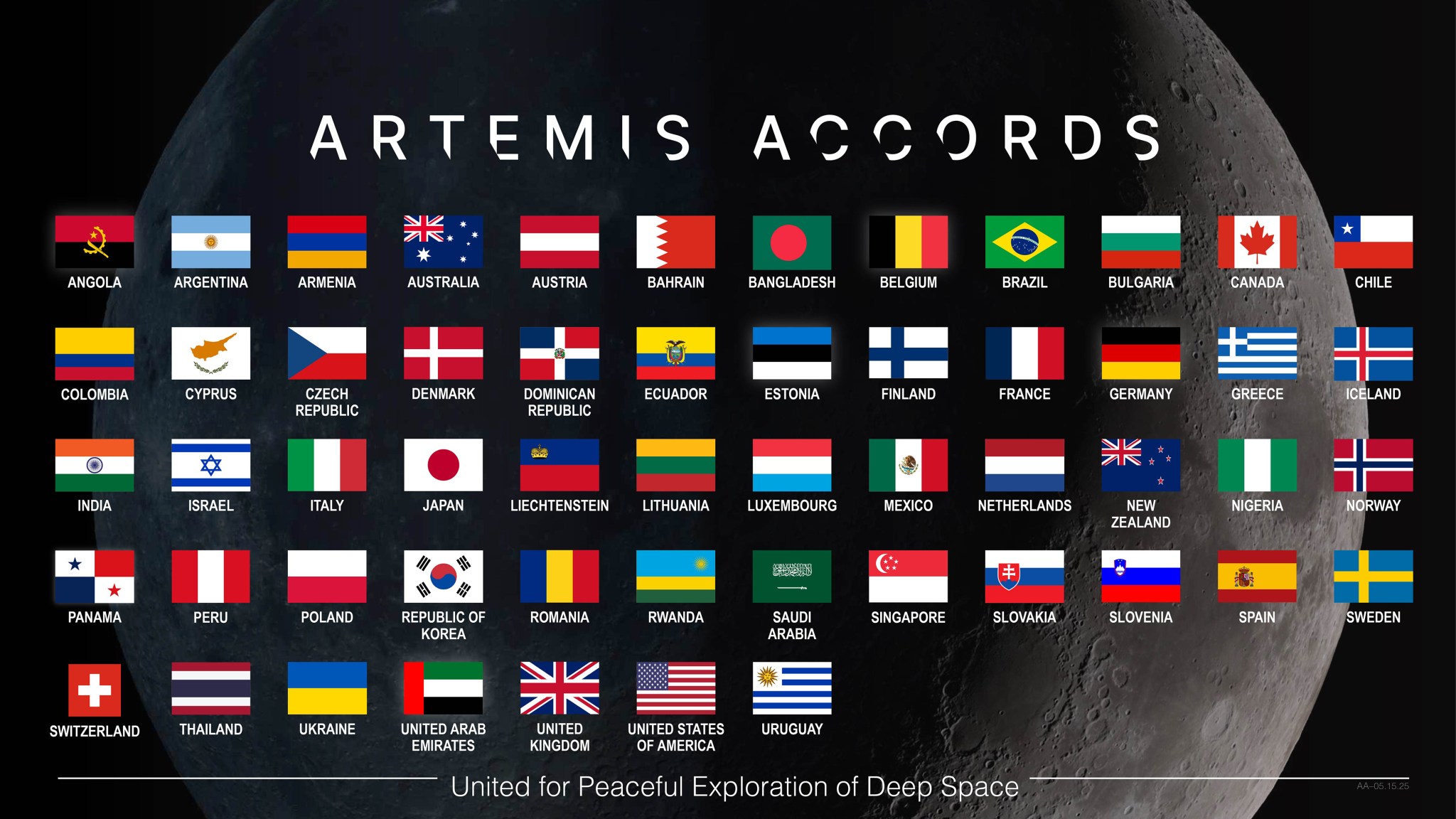NASA Supports Artemis Accords Signatories Advancing Exploration
- NASA participated in an international Artemis Accords workshop to advance safe and responsible exploration of the Moon, Mars, and beyond.
- The Artemis Accords are a set of non-binding principles signed by 54 countries, including the US, aiming for peaceful and prosperous space exploration for all humanity.
- Participants from 30 countries discussed challenges for operating in complex environments and reaffirmed their commitment to upholding the accords’ principles.
- The Artemis Accords signatories have committed to sharing information about their activities with the United Nations and other channels, emphasizing transparency and communication as key to peaceful exploration.
- NASA anticipates additional countries will sign the Artemis Accords in the coming weeks and months, building on the accords’ foundation in international agreements and best practices for responsible behavior in space exploration.
The United States participated in an international Artemis Accords workshop May 21-22 to advance the safe and responsible exploration of the Moon, Mars, and beyond. Hosted by the United Arab Emirates (UAE), which was represented by the UAE Space Agency, the workshop took place at the Abu Dhabi National Exhibition Centre.
The Artemis Accords are a set of non-binding principles signed by nations for a peaceful and prosperous future in space for all of humanity to enjoy. In October 2020, under the first Trump administration, the accords were created, and since then, 54 countries have joined with the United States in committing to transparent and responsible behavior in space.
“Following President Trump’s visit to the Middle East, the United States built upon the successful trip through engagement with a global coalition of nations to further implement the accords – practical guidelines for ensuring transparency, peaceful cooperation, and shared prosperity in space exploration,” said acting NASA Administrator Janet Petro. “These accords represent a vital step toward uniting the world in the pursuit of exploration and scientific discovery beyond Earth. NASA is proud to lead in the overall accords effort, advancing the principles as we push the boundaries of human presence in space – for the benefit of all.”
Participants from 30 countries joined the discussions and a tabletop exercise centered on defining challenges for operating in a complex environment.
As the Artemis Accords workshop concluded Thursday, participants reaffirmed their commitment to upholding the principles outlined in the accords and to continue identifying best practices and guidelines for safe and sustainable exploration. The first workshop was hosted by Poland in 2023, followed by Canada in 2024.
Artemis Accords signatories have committed to sharing information about their activities to the United Nations of Committee on the Peaceful Uses of Outer Space and other appropriate channels. Transparency and communication are key to peaceful exploration.
The Artemis Accords signatories will gather for face-to-face discussions on the margins of the International Astronautical Congress in late September, where workshop recommendations and outcomes will be presented to the Artemis Accords principals. NASA anticipates additional countries will sign in the coming weeks and months.
The Artemis Accords are grounded in the Outer Space Treaty and other agreements, including the Registration Convention and the Rescue and Return Agreement, as well as best practices for responsible behavior that NASA and its partners have supported, including the public release of scientific data.
Learn more about the Artemis Accords at:
https://www.nasa.gov/artemis-accords

